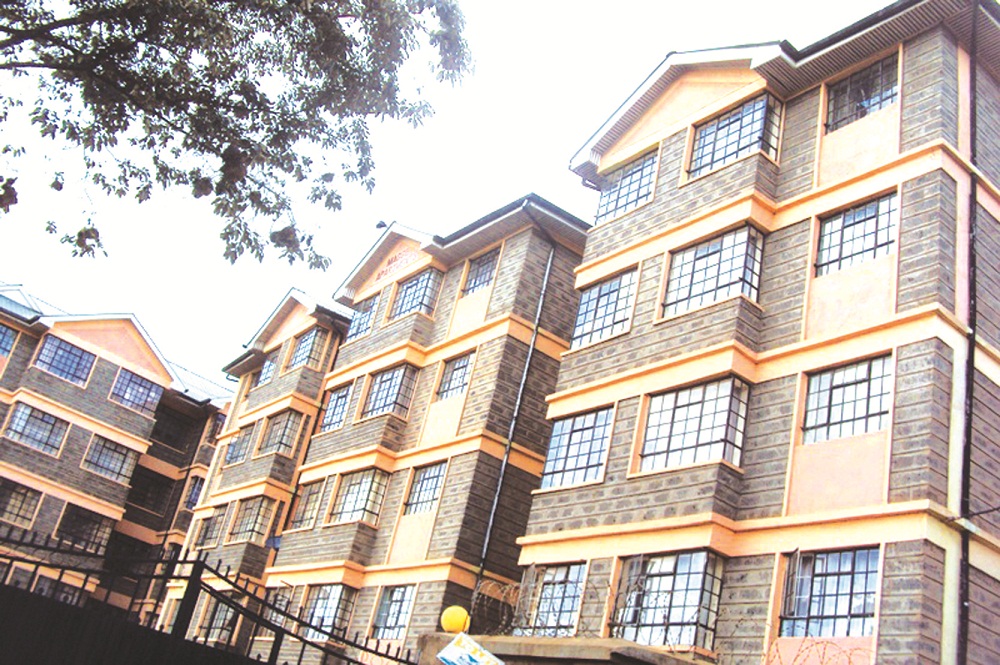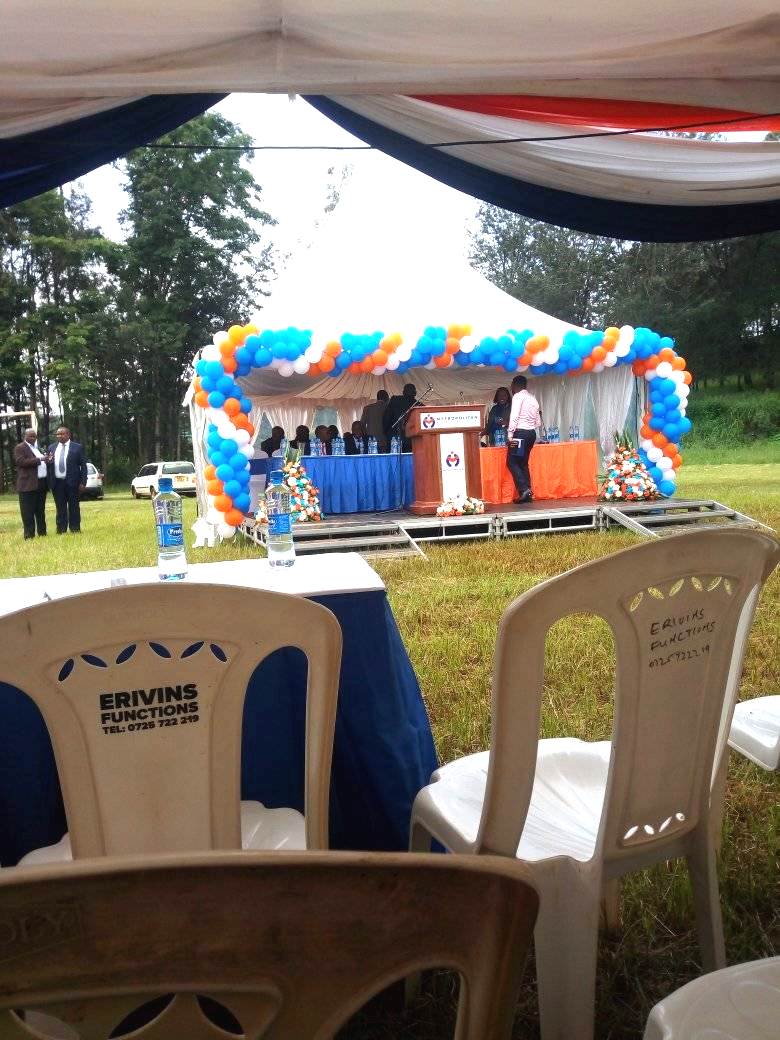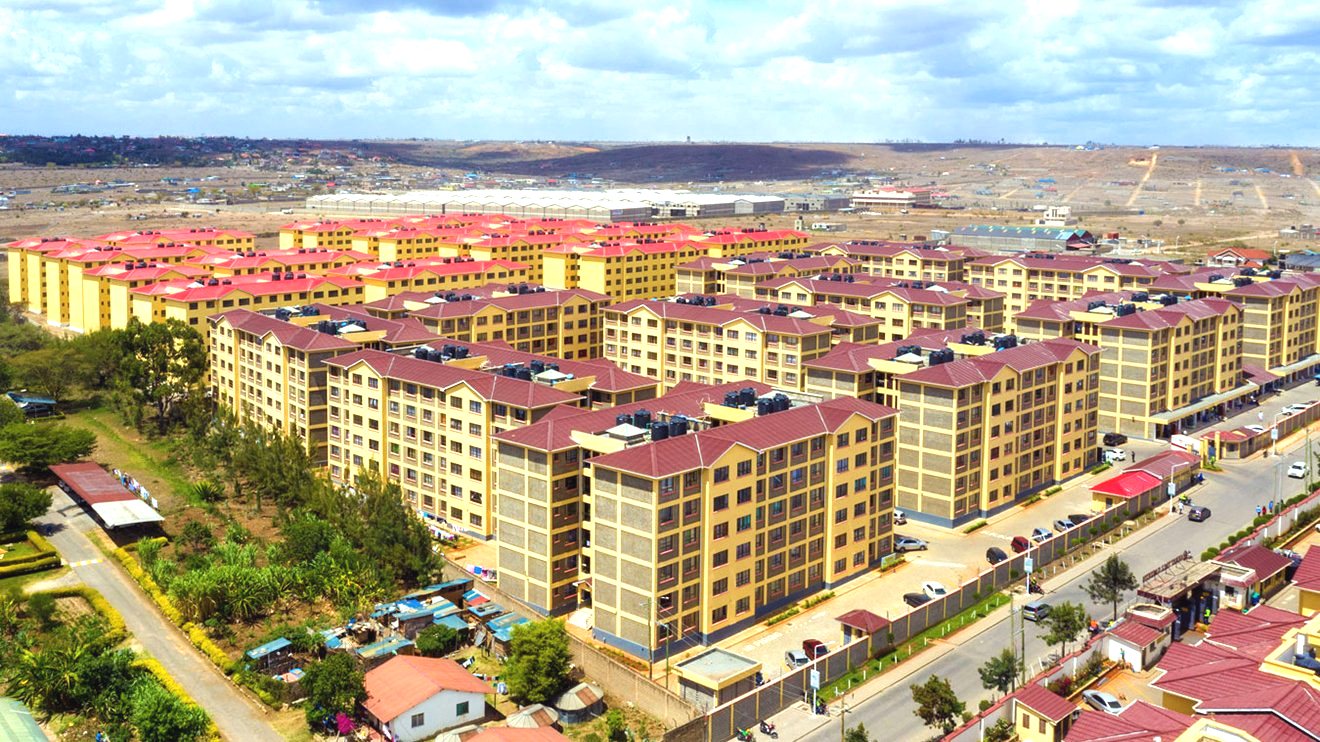By Roy Hezron
Landlords and agents who evict or subject tenants to any form of harassment to compel them to vacate due to rent arrears or pay higher rent risk being jailed for six months or a fine not exceeding two months’ rent of the premises if a new bill will fully be enacted into law.
The Landlord and Tenant Bill, 2021 which is being sponsored by the government through the Leader of Majority in the National Assembly Hon. Amos Kimunya will compel landlords, agents or servants who want to evict tenants for either residential or business premises to first seek authority from the Landlord and Tenant Tribunal; which also has powers to make orders for the recovery or possession and for payment of rent arrears, profits and service charges.
“A landlord and any agent or servant of a landlord who evicts a tenant without the authority of the Tribunal, or willfully subjects a tenant to any annoyance with the intention of inducing or compelling the tenant to vacate the premises or to pay, directly or indirectly, a higher rent for the premises; commits an offence and is liable on conviction to a fine not exceeding two months’ rent of the premises or to imprisonment for a term not exceeding six months, or both,” reads the proposed law in part.
The Bill, which was passed by the National Assembly early February 2022 and forwarded to the Senate for input as it affects functions of county governments, seeks among other things to regulate the relationship between landlords and tenants.
Cases of tenants being harassed by landlords and agents over payment of rent arrears with some even being locked inside the houses have been on the rise notably between 2020 and 2021.
The bill is coming at a time when a report released by Kenya Institute for Public Policy Research and Analysis (KIPPRA) titled Kenyan Economic Report 2021 themed “Kenya in COVID-19 Era: Fast Tracking Recovery and Delivery of the Big Four Agenda” revealed that more Kenyans were sinking into poverty, two years after Covid-19 was first reported in the country, leading to massive jobs losses and rent defaults.
According to the report, 37.5 percent of the Kenyans were unable to pay rent with Vihiga (61.9 percent), Meru (61.3 percent) and Murang’a (57.9 percent) counties leading with the highest number of rent defaulters. About 30.8 percent paid their rent on time, while 45.8 percent paid on agreed date the before the outbreak of Covid-19.
The report shows that the country’s rental market is dominated by rental housing of below Sh.5,000, which is paid by about 72.8 percent. 8.7 percent paid between Sh.5,001 to 10,000, whereas a paltry 3.6 percent lived in housing units of above Sh.10,000.
Further, the report indicated that majority (60.8 percent) of households reported that they could not pay rent because of reduced earnings and income, with about 25.3 percent of unable to pay rent due to temporary job losses through layoffs and closure of businesses.
“The emergence of the Covid-19 pandemic has affected the housing sector with adverse effects being experienced by lower-income earners. In particular, the low-end rental market segment is adversely and disproportionately affected by the pandemic, with 42 percent of households falling behind on their rent payments mainly due to reduced income and earnings,” reads the report.
The report also shows the tenure status across the counties which indicates that Nairobi County has the majority (90.6 percent) of households living in rented housing units while only 9.3 percent own dwelling units.
Other counties with a high proportion of renters include Mombasa (79.1 percent), Kiambu (62.9 percent), Nakuru (54.0 percent), Uasin Gishu (49.1 percent), and Kisumu (40.4 percent).
The government further wants to compel the landlords or their agents to keep signed records of all the rent paid and share the report with the tenants, failure to which could earn the landlord a fine not exceeding one month’s rent of the premises.
“A landlord or his agent shall keep or cause to be kept rent records in respect of his rented premises, in such form as may be prescribed and shall provide the tenant with a copy,” says the Bill.
The rent records shall contain among other things details of the parties to the tenancy, particulars of the rented premises, the rent payable and a record of all payments of rent made.
Regarding increase in rent payments, the Bill requires the landlords to give a 90-days written notice of the intention to increase rent, and in particular specifying his intention to increase the rent and amount of the new rent.
The bill requires the landlords to increase rent if he or she has carried out or undertakes to carry out specified capital expenditure, or provided or undertakes to provide a new or additional service.
The rent increase will also take into account inflationary trends in the economy where the rates like land and rental tax rates payable by the landlord have since increased.
The land rates differ from one locality to the next with those with rental and business premises in major cities like Nairobi, Mombasa, Kisumu and Nakuru paying higher than other towns and municipalities.
Kenya Revenue Authority (KRA) takes Residential Rental Income which is tax payable by resident persons (individual or company) on rental income earned for the use or occupation of a residential property where the rent income is between Sh.288,000 and Sh.15 million per annum.
However, landlords with rental income below Sh.288,000 or above Sh. 15 million per year are usually required to file annual income tax returns and declare rental income together with income from other sources.
According to KRA, Rental Income Taxation is calculated under individual graduated scale or corporate rate of 30 percent together with rent on non-residential buildings (Commercial).
The Taxable Income is determined through gross rent income for the year with property A of 5 units paying Sh.20,000 per month while property B which has 10 units paying Sh.15,000 per month; bringing to a total rent income of Sh.3 million a year.
However, this amount is reduced further by allowable expenses which include Sh.10,000 land rent or rates, Sh.20,000 for insurance, Sh.30,000 agent’s fees, Sh.160,000 for repairs, Sh.85,000 for loan interest, and Sh.60,000 for electricity; hence ending up with a net taxable income of Sh.2,635,000 payable by landlords annually.
The Bill further states that those landlord who shall disconnect or discontinue any of utilities like electricity, water, sewage disposal or other services used by tenants risk a jail term of 6 months or a fine of Sh.10, 000 or both.
“No landlord shall, except with the prior consent of the Tribunal, and no person other than a landlord shall without lawful authority, do any act whereby any tenant is or may be, either directly or indirectly deprived; or any other person is or will be enabled, either directly or indirectly, to deprive any tenant of any water, light, sweeper or other service,” reads the Bill.
The bill also indicates that the Landlord and the tenant must have tenancy agreement prior to occupying the premises.


